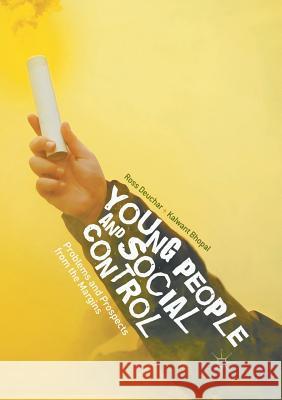Young People and Social Control: Problems and Prospects from the Margins » książka
topmenu
Young People and Social Control: Problems and Prospects from the Margins
ISBN-13: 9783319850139 / Angielski / Miękka / 2018 / 183 str.
Kategorie:
Kategorie BISAC:
Wydawca:
Palgrave MacMillan
Język:
Angielski
ISBN-13:
9783319850139
Rok wydania:
2018
Wydanie:
Softcover Repri
Ilość stron:
183
Waga:
0.24 kg
Wymiary:
21.01 x 14.81 x 1.07
Oprawa:
Miękka
Wolumenów:
01
Dodatkowe informacje:
Wydanie ilustrowane











